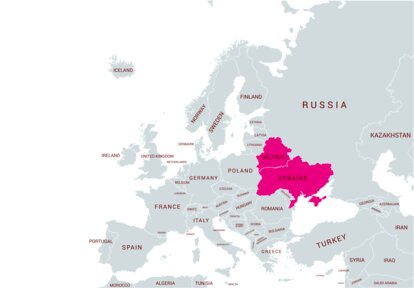How to build a liberal youth organisation

The Situation
The political situation in Ukraine and Belarus could not be more different. However, openly liberal forces are few in both authoritarian Belarus and formally democratic Ukraine.
The Republic of Belarus has been engulfed by lasting protests against the authoritarian regime of the country’s first and only President Alexander Lukashenko, triggered by his obviously fraudulent sixth re-election in August 2020.
In 2014, after the victory of the Euromaidan protests against then-President Viktor Yanukovych, Ukraine’s territorial integrity came under attack. Russia has illegally annexed the Crimean peninsula and triggered a fierce war in the eastern Ukrainian region of Donbas, which has been ongoing ever since. Despite that, since 2014 Ukraine has consistently shown its ability to conduct generally free and fair elections, yet has struggled to uphold the rule of law and combat endemic corruption.
In these times, politically interested and motivated young Belarusian and Ukrainian partners of the Friedrich Naumann Foundation project office in Kyiv participated in our seven days-online programme “How to build a liberal youth organisation”. They are members of four youth organisations from Ukraine, one of which is still in the process of founding and one of the few independent youth organisations from Belarus.

In both cases, the support of liberal forces is timely and desirable. The flawed, yet generally open, political system of Ukraine allows for political competition and emergence of new political forces. Therefore, liberal youth organisations there may act as a starting point for future liberal political cadres. The protests in Belarus have shown that the regime of Mr. Lukashenko may not be as unshakeable as it has seemed and hinted at a possible democratic transition in the near future.
The project office in Kyiv, Ms. Beate Apelt und Mr. Volodymyr Kildii, has been cooperating with liberal youth organisations in both countries and supported their participation in the exclusive online version of the IAF Visiting Programmes.
We had one week with interesting interlocutors, video tasks to introduce each other, to develop strategies to improve the youth organisations and group discussions.
Our moderator Sven Gerst, the Secretary General of IFLRY (The International Federation of Liberal Youth), who has many years of experience in working in youth organisations, was not only guiding through the sessions, but also evaluating the ideas and strategies together with our young participants. He provided them with his experiences and gave profound feedback during the evaluation of their video tasks and introduction to their organisational structure and the media presentation, since especially the social media and a well-organised online network are inevitable for youth organisations.
We had the pleasure to welcome and discuss with several well-known interlocutors, with a political background in youth organisations themselves or being specialised in media marketing and youth studies.
Day 1:
The week started with a general introduction into liberalism and its values, such as freedom of expression, the rule of law and individual rights, by Sven Gerst. We rounded off the evening session with Moritz Körner, MEP of Renew Europe, who introduced the rebuilding strategies of the FDP (Free Democratic Party Germany), which they used after they did not succeed in entering the Bundestag in 2013. Their main policies concerned education, human rights, innovation and a fair life for everybody. This renewal and a change of the strategies of the FDP led to the party’s successful re-entry into the parliament.
Day 2
Our next guest speaker, Nemir Ali, Chairman of the Young Liberals Germany (JuLis), introduced his organisation and its structures as well as their policies. He explained the strategies of asserting the youth policies to their mother party FDP, how social media can be effectively used, not only to address potential new members, but also to catch the attention for certain goals, and about the importance of local events and engaging with the youth in personal discussions.
Following the interesting introduction into the structure of the German JuLis, we had the great opportunity to welcome Konstantin Kuhle, a Member of the German Bundestag for the FDP and a long member of the JuLis. He explained the importance of his active participation in the youth organisation for his future job at the Bundestag. It prepared him for holding speeches, public appearances, explained do´s and don’ts in politics. However, apart from the training one can get there, socialising in the group also plays an important role and helps creating a diversity in politics, as politics should be for everyone.
Day 3
The third day of our online journey included another interesting guest, Damian Boeselager, MEP and Co-Founder of Volt Europa. As a still young party, founded in 2016, Volt Europa is already successful and has engaged many members in Europe in a short time. Their strategy is not based on hierachy, but on professionalism according to knowledge and capabilities. Thus, communication and activation of skills are seen as essential to gain and keep members. The structure of the party and its organisation is the same in all countries, which further simplifies the communication. Mr. Boeselager advised not to focus on opposing other parties, but instead on own goals.
Day 4
Being present in social media and networking in the world wide web are inevitable, especially for the new generations. Nick Clelland, a South African politician, communications professional and author, gave our group a crash course in political communication.
Starting from well-known commercial brands, he showed what makes a good brand strategy that connects a product to emotion.
Using impressive examples from his active political career, he clarified the difference between a theme and an issue and why it is so important to drive concrete hot issues in political competition.
The international talk the next evening was concluded by a round table with three members of youth organisations from Romania, Russia and Hungary, Ioana Abăseacă (USR Tineret), Alexandra Bogdanova (Vremja) and Luis Cano (Momentum). Their solid experience in using social media and innovative ideas to attract youth led to a vivid discussion and many questions from our group. Humouristic and fresh communication with their members as well as out of the box campaigns are the keys to a successful recruitment of the youth. Fundraising could be an option to finance bigger projects. Our group took many great and exciting ideas into their strategic consideration.
Day 5
Our last day with interlocutors was rounded off by Simon Schnetzer, a German Youth Researcher, Speaker and Trainer. He is specialised in the field of youth studies (Millennials and Generation Z) and was able to give a profound insight in the “young minds today”, specifically what concerns them, what are their values and how can they be motivated to being active in politics. Appreciation is counted as a key aspect for the success and the feeling of community within the youth organisation.
Day 6
Our evaluation day and the last task for our Ukrainian and Belarusian youth partners was to re-evaluate their respective organisations using their newly gained knowledge and to present them in a new way. The organisations’ raison d'être, their priorities, goals, targets and organisational culture all came into play here. As they had already worked on several tasks during the week, the improvement was obvious and the new impressions and learnings were included in the presentations.
Thank you very much for organizing the workshop! Maximum interactivity for a while allowed us to forget that we areonline, not in a live meeting.
Bottom line, our VIP Online Programmes might not replace a visiting programme to Germany, but they can nevertheless improve and support our partners and create a new network.
A special thanks to our project office in Ukraine, our particpants from Belarus and Ukraine, to Sven Gerst and of course our interesting interlocutors and interpreters.
October, 2020
Susanne Wegener, Beate Apelt and Volodymyr Kildii